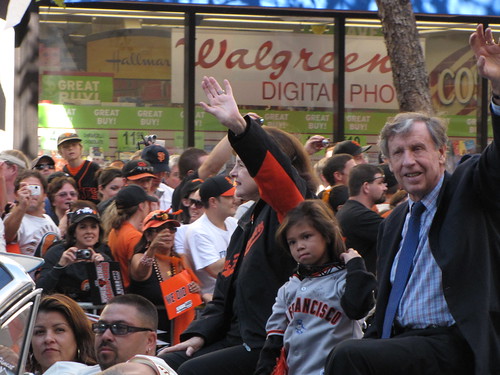Dianne Feinstein called Milk assassination the “darkest day” of her life
Dianne Feinstein #DianneFeinstein

In 1978, San Francisco Supervisor Harvey Milk, the first openly gay elected official in California, and the city’s Mayor George Moscone were assassinated. The person who broke the news to the world: Dianne Feinstein, then president of the city’s Board of Supervisors.
“Both Mayor Moscone and Supervisor Harvey Milk have been shot and killed,” Feinstein told a gaggle of reporters, who expressed shock at the news. “The suspect is Supervisor Dan White.”
Feinstein, who died at age 90 on Friday, went on to become California’s first woman U.S. senator. But directly after the assassination, she assumed the role of mayor of San Francisco.
In 2008, the 30th anniversary of the assassination, Feinstein spoke to SF Gate about discovering Milk’s dead body in city hall after their colleague, White, killed him. “I went down the hall. I opened the wrong door. I opened (Milk’s) door. I found Harvey on his stomach. I tried to get a pulse and put my finger through a bullet hole. He was clearly dead,” she told the local newspaper.
Feinstein said she was on a three-week vacation before the murder, but she spoke to White on the phone during that time. He was upset that the mayor wasn’t going to reappoint him and felt that Milk did not defend him, according to Feinstein.
During his murder trial, White employed the now-infamous “Twinkie Defense,” blaming junk food – as well as stress about his job – for the murders. By blaming mental illness, White received a lesser sentence, manslaughter. Furious Milk supporters, who wanted White convicted of first-degree murder, rioted in the city in what is known as the “White Night” riots.
In her interview with SF Gate, Feinstein said White did not kill Milk because he was homophobic, but rather because he felt betrayed by Milk when the mayor decided not to reappoint him.
During the trial, Feinstein testified about White and their friendship, which brought the defendant to tears.
But she told SF Gate that when White was released from prison in 1984, she had San Francisco Police Chief Con Murphy tell White not to come back to the city, because “his chances of survival were not good.” White committed suicide in 1987.
Feinstein told SF Gate if she could undo the moment of the assassination, she would do “it in a second, in a nanosecond.”
When the Oscar-nominated film “Milk” was released in 2008, she said she didn’t want to see it. “I think in my face you saw the pain of the day 30 years ago,” she told SF Gate. “I still have a hard time returning to it, and I’m not a masochist. I know what happened. I lived those times, and I’ve tried to learn from them in terms of the kind of public servant I am, and that’s really enough for me.”
Feinstein has since called the day of the assassinations “the darkest day of my life.” In the summer of 2016, after several instances of gun violence across the country – including the killings of two Black men by police officers – Feinstein put out a statement and referenced the killings that affected her life.
She said after White’s trial, the city was “filled with grief and torn apart by hate and a lack of trust” and as mayor, she formed a task force of gay and religious community leaders as well as police officers to help heal the city.
Decades after the tragic event, Feinstein continued to remember Milk, regularly posting about him on his birthday or on the anniversary of the assassinations. And in 2022, she marked the acceptance of USNS Harvey Milk – a Naval shipped named after the gay rights icon – into the Navy.
She was on the San Francisco board when it passed Milk’s gay rights ordinance, which banned discrimination against members of the LGBTQ community in housing, employment and public accommodations. The only person who voted against the ordinance was White, according to a New York Times report from 1978.
During her time as a senator, Feinstein continued to stand up for LGBTQ rights, introducing the Respect for Marriage Act in 2011. The law, passed in 2022, guarantees legal protections for same-sex marriages and repealed the Defense of Marriage Act, which prevented the recognition of same-sex marriage by the federal government. Feinstein was one of the few senators who opposed DOMA in 1996.
She also advocated for equality in the military and supported the Equality Act, which would expand civil rights for the LGBTQ community at the federal level.
Gen. Milley responds to Trump post accusing general of treason | 60 Minutes
Gavin Newsom explains why he’s going to the second Republican debate
Trump skips second Republican debate to deliver speech in Michigan